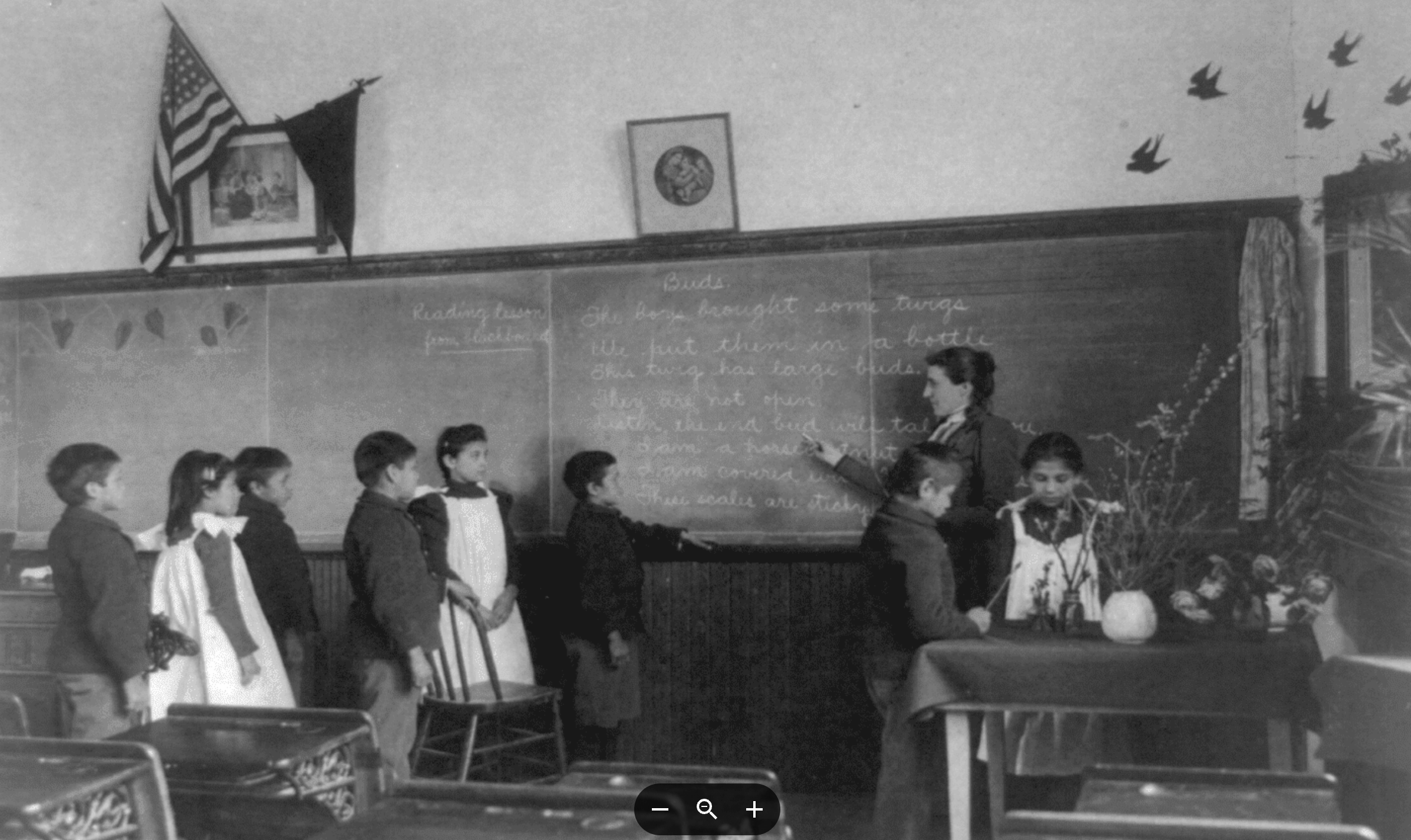
- Details
- By American Indian College Fund Blog
Guest Opinion. We are learning when the U.S. government entered into trust and treaty relationships with Indians Tribes as sovereign nations, the federal government instead used much of the money held in trust for Native people to forcibly relocate their children to boarding schools. The goal was to assimilate them. Many children never saw their families again, some died from malnutrition or disease or abuse, and others were taken at such a young age they no longer knew their families, languages, or homelands.
In addition to robbing Native people of their family and kinship relationships and their children of an appropriate education in their own communities, reports indicate that 973 children of the more than 60,000 American Indians taken away died while attending the 451 boarding schools located across 37 states or territories between 1819 and 1969 (as reported in the U.S. Department of Interior’s second volume of the Federal Indian Boarding School Initiative Final Report released in July of 2024).
Tribal members believe even hundreds more children died and were not included in the federal government’s official tally.
Boarding school survivors and their heirs were never compensated for the harm they and their family members suffered. Several filed a class action lawsuit on May 22, 2025, to get an account of how money held in trust for the tribes was spent and requesting damages for the harm they and family members suffered.
“Rather than provide what was promised and what was legally owed, the United States forcibly separated Native children from their parents, and systematically sought to erase their cultural identity, killing, torturing, starving and sexually assaulting many in the process,” the lawsuit said.
The suit was filed by the Washoe Tribe of Nevada and California and the Wichita and Affiliated Tribes of Oklahoma on behalf of Native nations whose children attended boarding schools against the Department of Interior, its Bureau of Indian Affairs, and its Bureau of Indian Education in federal court in central Pennsylvania. The location was once home to the notorious Carlisle Indian Industrial School, a boarding school where children as young as two years old were sent to travel cross country from as far away as Arizona.
This is why the American Indian College Fund believes tribal colleges and universities (TCUs) are so central, successful, and important to healing and providing higher education in our communities. A TCU education rooted in Native cultures and languages immerses Native people from elders to the youngest children in their values and supports them as they heal and learn. TCUs also provide vital services such as early childhood education, libraries, food services, health services, and more.
Cheryl Crazy Bull, President and CEO of the American Indian College Fund said, “Our mission at the American Indian College Fund is to provide Native people with access to a higher education and to support the TCUs in their important work. TCUs are rekindling the knowledge lost in the boarding school era.”
In a 2019 Gallup Survey of TCU alumni, 74% of TCU graduates said they graduated and went on to serve their communities—a deep-rooted Native value. In addition, TCU alumni report greater wellness outcomes and a greater sense of being supported by faculty and staff, leading to academic success.
Crazy Bull added, “We believe education is one answer to healing the wounds of the past. We also believe justice and accountability will go a long way to help with this healing.”
Help us defend tribal sovereignty.
At Native News Online, our mission is rooted in telling the stories that strengthen sovereignty and uplift Indigenous voices — not just at year’s end, but every single day.
Because of your generosity last year, we were able to keep our reporters on the ground in tribal communities, at national gatherings and in the halls of Congress — covering the issues that matter most to Indian Country: sovereignty, culture, education, health and economic opportunity.
That support sustained us through a tough year in 2025. Now, as we look to the year ahead, we need your help right now to ensure warrior journalism remains strong — reporting that defends tribal sovereignty, amplifies Native truth, and holds power accountable.
 The stakes couldn't be higher. Your support keeps Native voices heard, Native stories told and Native sovereignty defended.
The stakes couldn't be higher. Your support keeps Native voices heard, Native stories told and Native sovereignty defended.
Stand with Warrior Journalism today.
Levi Rickert (Potawatomi), Editor & Publisher

